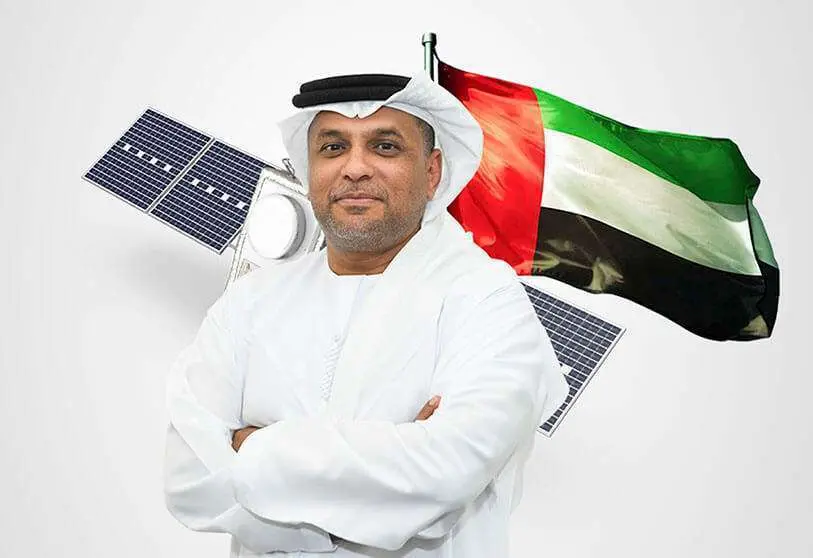Emirates will put its first navigation satellite into orbit in 2021

The Emirates will manufacture and put into orbit its first navigation and positioning satellite over the next year, an initiative that once again highlights that the Gulf country's space aspirations are very serious, both on the human and robotic exploration side of the cosmos and on the industrial side.
The director of the National Centre for Space Science and Technology, Khaled Al Hashmi, has just announced that a first GPS-type demonstration satellite "will be launched in 2021" and a second more advanced one "will fly in 2022", to demonstrate "the technological capabilities of the Emirates".

The initiative is the first industrial project of the so-called Satellite Assembly, Integration and Test Centre, a new facility scheduled to open in early 2021 in the city of Al Ain in the Emirate of Abu Dhabi, one of the seven that make up the Union of Arab Emirates.
Also known as the Garden City of the Emirates, Al Ain is located 140 kilometres east of the city of Abu Dhabi and near the border with Oman. With more than 600,000 inhabitants, it is the fourth most populous city in the country and the home of the Emirates National State University, the country's first higher education institution, which is also involved in the project, as is the Emirates Telecommunications Regulatory Authority and the Emirates Space Agency.

The architecture and layout of the centre will be adapted to provide the complete value chain for small and medium sized communications, navigation and observation platforms weighing between 50 and 250 kg. It will have component manufacturing lines, clean rooms for the assembly of structures and for complete integration, and test and trial facilities.
The new centre will be built in collaboration with the so-called Tawazun Economic Council, the business corporation that identifies opportunities and leads the diversification of Emirates' investments in strategic sectors, especially through long-term partnerships in the defence and security framework.

To acquire the know-how to develop GPS technology, the Emirates Space Agency has selected the European multinational Airbus, which will be responsible for training Emirate personnel and providing its extensive experience in the design, manufacture and integration of satellites, as well as equipping, installing and commissioning the new Satellite Centre facilities.
Talks with Airbus' President for Africa and the Middle East, Mikail Houari, have been ongoing for two years and were concluded at the end of July, shortly after the launch of the Al Amal Mars probe into orbit. From Mikail Houari's perspective, the new partnership "will support the growth of the Emirates' space and satellite sector, while contributing to the country's economic diversification strategy".
For Tawazun's economic development director, Matar Ali Al Romaithi, it is "the corporation's second space project and there are many more to come. The corporation's first initiative was Yahsat, the satellite communications company owned by the Abu Dhabi government.

According to Matar Ali Al Romaithi, the Emirates is keen to acquire the knowledge necessary to become "a regional centre for space research and activities" and the new centre is an integral part of the plans for the country to "acquire skills that will make its economy sustainable in the long term". The University of the Emirates and the National Space Science and Technology Centre have also signed an agreement from the end of 2019 with the Danish company GomSpace to receive training in the manufacture of cubesat, scalable nanosatellites in the shape of a cube with a 10-centimetre side and a mass of less than 1.33 kilos.
The widespread worldwide insertion of satellite navigation and positioning equipment in cars and smart phones, as well as for a wide range of applications, is what has decided the Emirates authorities to give the green light to the project.
But Khaled Al Hashmi has made it clear that the initiative "is not intended to immediately add a new satellite navigation system, nor to replace any of the existing ones". According to the director of the National Centre for Space Science and Technology, "other countries are also trying to develop similar systems for different purposes, for example to control and monitor drones.
Four global navigation and positioning satellite systems are currently in operation: the U.S. GPS system; Russia's GLONASS; the European Union's Galileo; and China's BeiDou, which was fully deployed in space just weeks ago. In addition to these four systems, which provide a global service, there are two regional systems: the so-called Quasi-Zenith (QZSS) of Japan and the IRNSS of India, which has been renamed NavIC.

The initiative to enter step by step into the small satellite navigation and positioning system sector - which has not yet been named - is envisaged in the Emirates Space Agency's roadmap.
So were the projects that are already a reality, such as the Al Amal probe that has been travelling to Mars since 19 July and the process of selecting future astronauts to join the first two that formed the Emirates Astronaut Corps at the end of 2018, military pilot Hazza Al Mansoori and telecommunications engineer Sultan Al-Neyadi.









